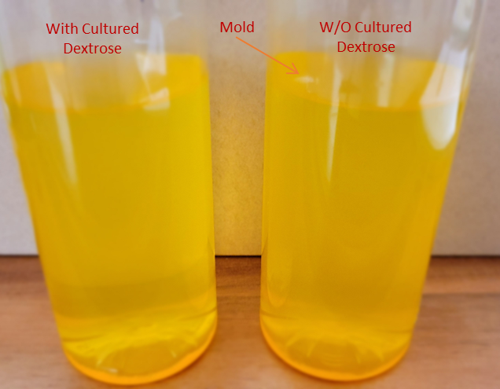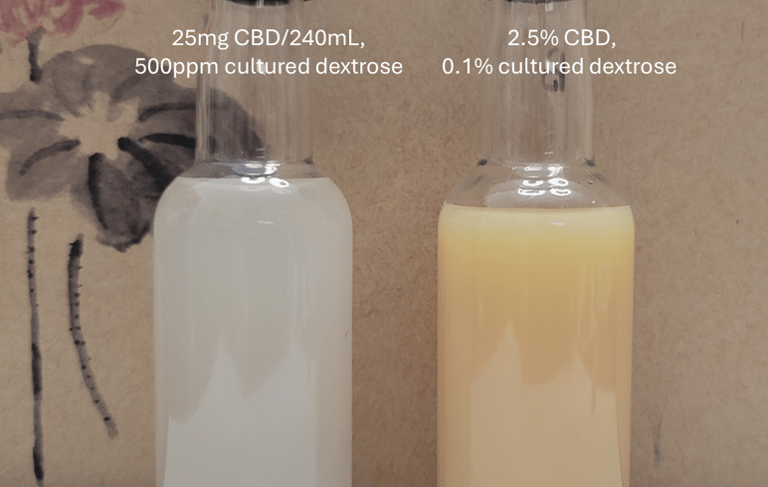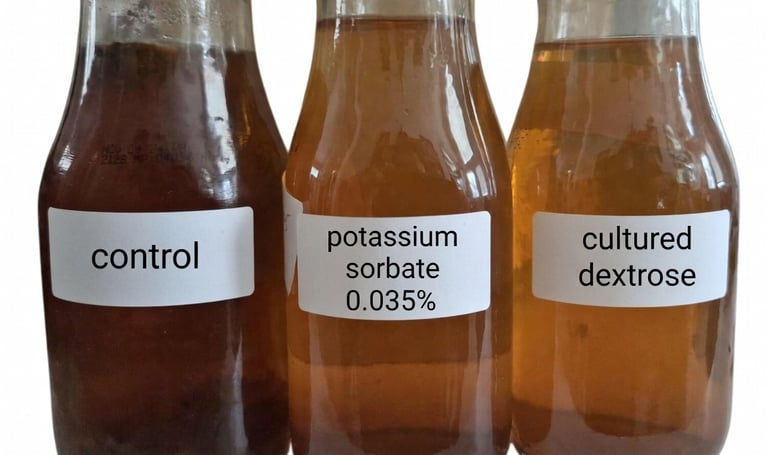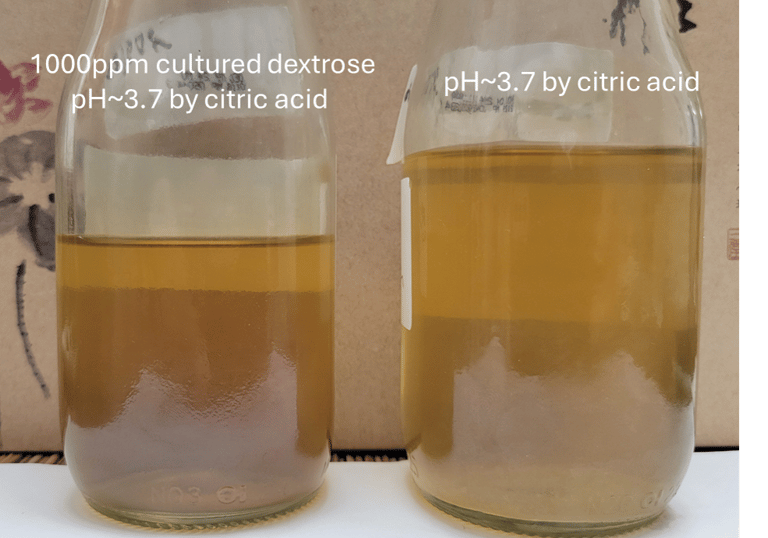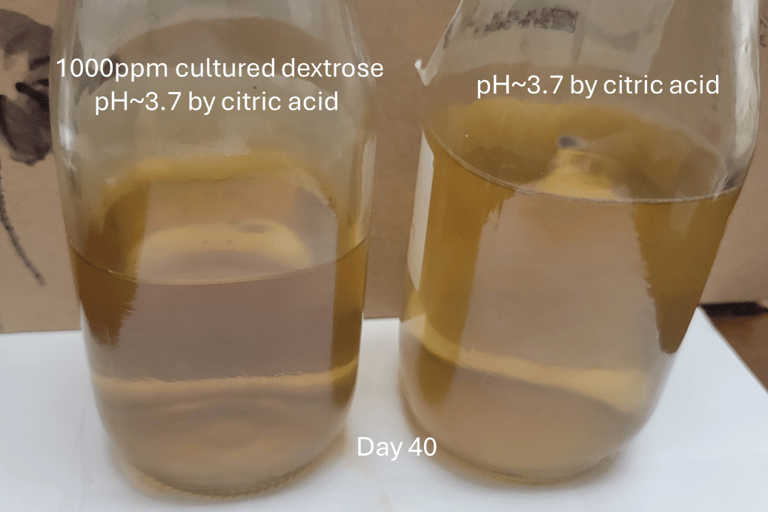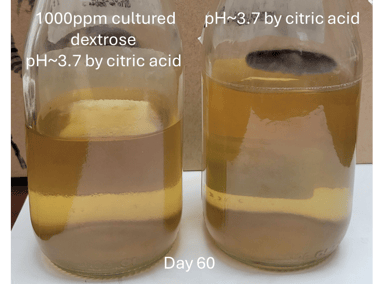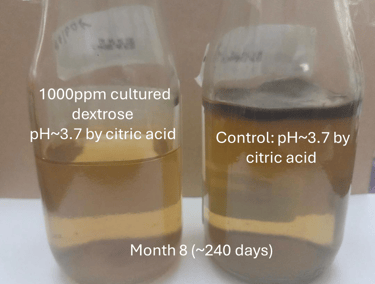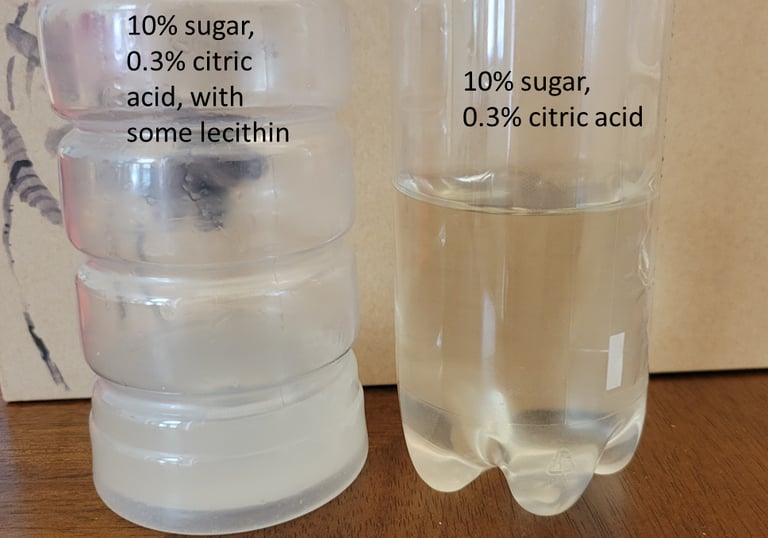
Beverage Case Studies
Calcium propionate, the main active ingredient in NaturalGARD cultured dextrose, shares the same effectiveness against bacteria and molds as sorbate, better than benzoate at stopping molds. Although it has little effect on enzymes and weak on bacteria, they are not a big concern because most drinks like sodas, sports drinks, juice drinks, coffee and teas are very acidic, with a pH below 4. Pasteurization also kills enzymes and bacteria, so they can’t grow in such an acidic environment. High purity NaturalGARD cultured dextrose could be the game changer for preserving beverages in a natural way.
Cultured dextrose is a suitable choice for clean label, zero or low-calorie drinks sweetened with stevia or monk fruit, it has been employed to perverse SweetLeaf sugar-free, all-natural stevia syrup or Lakanto simple syrup. Some drinks use calcium lactate as preservative and/or calcium fortifier, cultured dextrose containing calcium propionate is more potent as preservative, label friend, and also serves as calcium fortifier. Therefore, there may not be necessary to add additional sorbate or benzoate, like the popular PRIME energy drink. Simpler is always better.


Clean Label CBD Nanoemulsion Beverage
Clean label CBD (cannabidiol) nanoemulsion beverage containing 25mg CBD per bottle, no other preservative is added, no pasteurization was applied. Without NaturalGARD cultured dextrose, molds were observed in a week. The dosage(<0.1%) had no impact on color and flavor. Picture was taken at week 2 of storage at room temperature (picture right top).
Additional experiments demonstrated with 500ppm NaturalGARD cultured dextrose a CBD (25mg) infused beverage has shelf-life of at least six months with proper pasteurization while the non-preserved control showed spoilage sign in less than one month. The concentrate CBD (2.5%) nanoemulsion is persevered by 0.1% cultured dextrose and also shown no sign of spoilage for at least six months in the ongoing experiments (picture right bottom, taken at month seven). The concentrate had sign of spoilage in less than three months without preservatives and was previously preserved by potassium sorbate and sodium benzoate.
Only cultured dextrose with high concentration propionate that can be used in small amounts (<0.1%) without affecting the color and taste of beverages works for this purpose. Most of the cultured dextrose products in the market are not suitable for beverage applications because propionate concentrations in those products are less than 20%. Please check here for more insights.
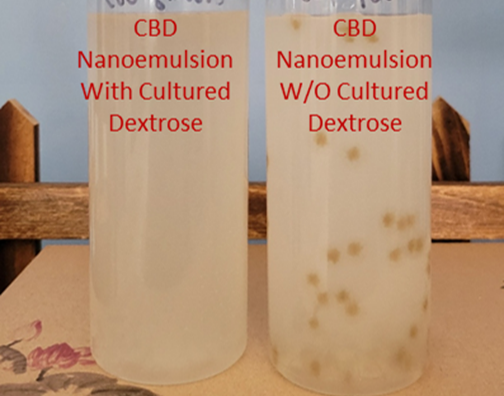

Lemonade
A clean label lemonade made with all natural ingredients. HTST pasteurization was applied. Without NaturalGARD cultured dextrose, spoilage was observed around day 53 stored at room temperature. The right bottle has no sign of mold or spoilage at month 12.
The dosage (~500ppm) had no impact on color and flavor.
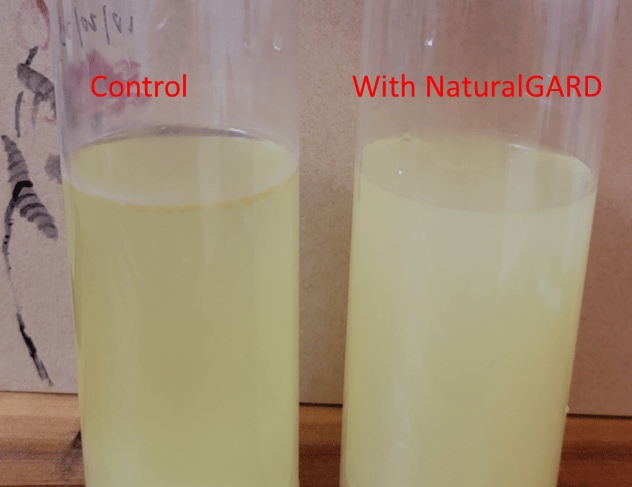

High VC Beverage
Drinks made from commercial high VC orange flavored powder drink mix, which contains no preservatives. No pasteurization was applied. Without NaturalGARD cultured dextrose, spoilage was observed on day 11 stored at room temperature. The dosage (<0.1%) had no impact on color and flavor. No mold or spoilage was observed in drink preserved by cultured dextrose (~400ppm) at month six.
Be aware that benzoate should NOT be used with vitamin C (ascorbic acid)
